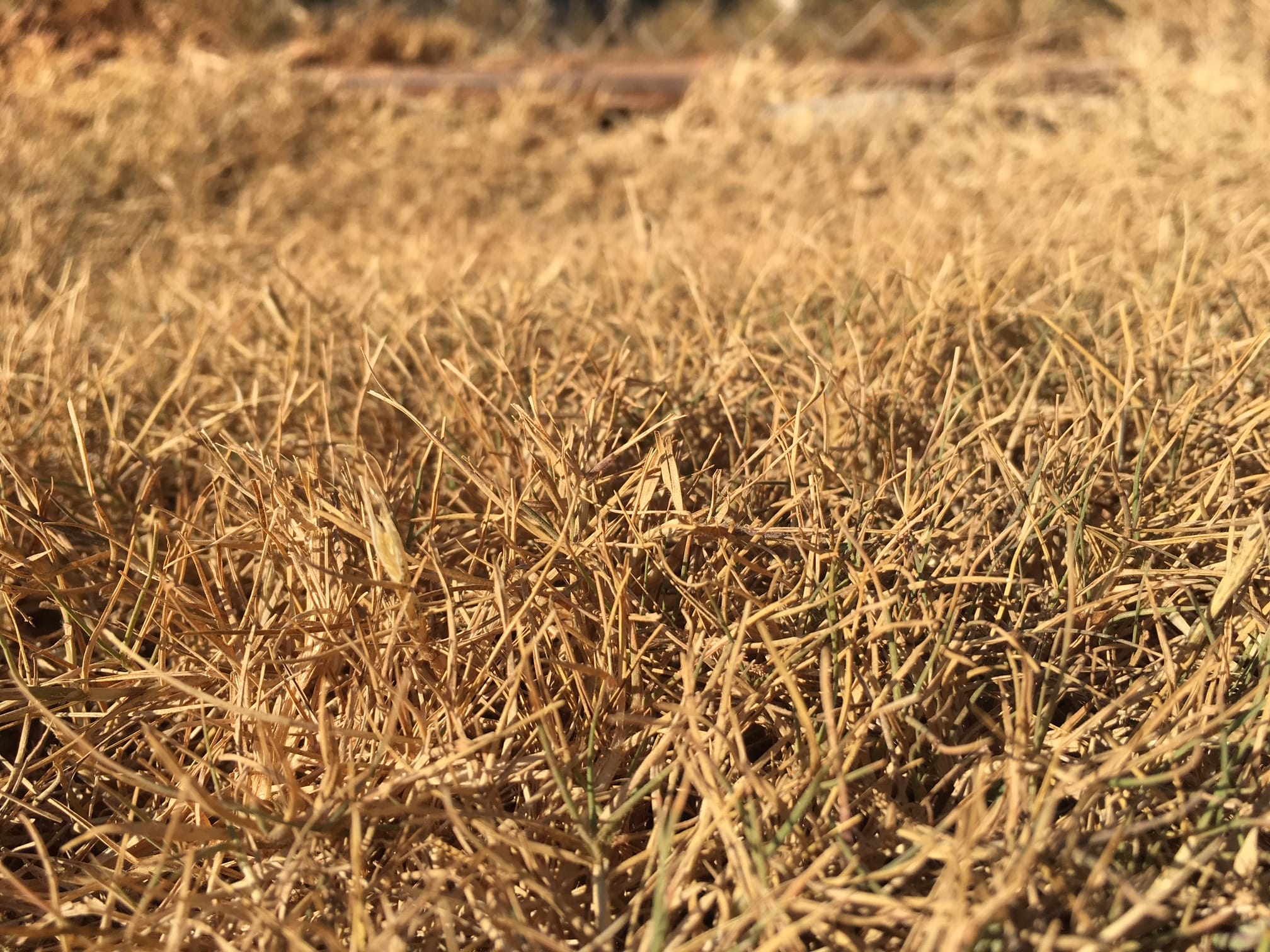The lack of rainfall in the second half of the growing season has hindered the production and storage of energy that normally takes place in warm-season turfgrasses from late summer through fall. In effect, warm-season turfgrasses could enter winter dormancy with depleted carbohydrate reserves. Dr. Clint Waltz, Extension Turfgrass Specialist with the University of Georgia, is concerned that winter hardiness and spring green-up issues could result from a rough end to the growing season. The weather over the next few weeks will decide how warm-season turfgrasses cross the finish line into dormancy.
“The limiting factor is water,” said Waltz. The biological activity that is necessary to gather and store carbohydrates requires water and we need some rain. With soil temperatures at the 4″ depth holding in the 60’s for October and the forecast through the end of the month calling for high temperatures near 80 degrees for much of the state, there may be some opportunity for growth where irrigation is available. However, gains will be marginal as the day length, temperatures, and radiant heat levels continue to drop. Applying 1/2″ inch of irrigation per week may be sufficient to help mitigate spring green-up issues and prevent crown desiccation if dry weather continues. Fertilizer is NOT recommended for warm-season grasses at this point in the season, especially nitrogen. Applications of potassium are generally recommended to promote winter hardiness, but without adequate water, the benefits of these applications may not be fully realized.
What can turf managers do to prepare? Irrigate if you can, do not fertilize, minimize mowing and wear damage, and avoid practices such as aeration that would induce additional plant stress as the turfgrass enters dormancy. When using irrigation systems, be sure to follow the parameters of the Georgia Water Stewardship Act of 2010 and stay informed on the latest drought information at www.georgiawatersmart.com. For more information on landscape watering visit www.Georgiaturf.com and download the publication “Best Management Practices for Landscape Water Conservation.” Most importantly, contact your local UGA County Extension Agent at http://extension.uga.edu/about/county/index.cfm or call 1-800-ASK-UGA1
